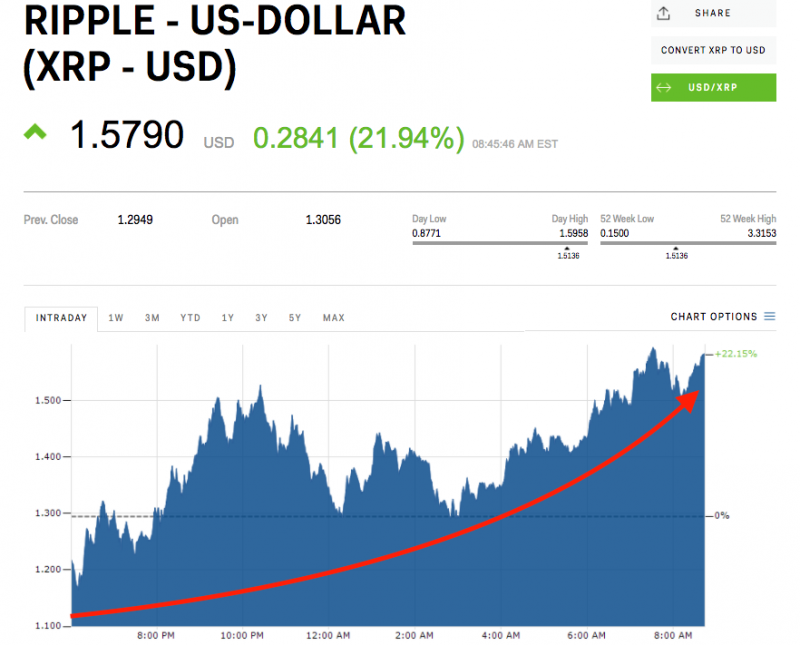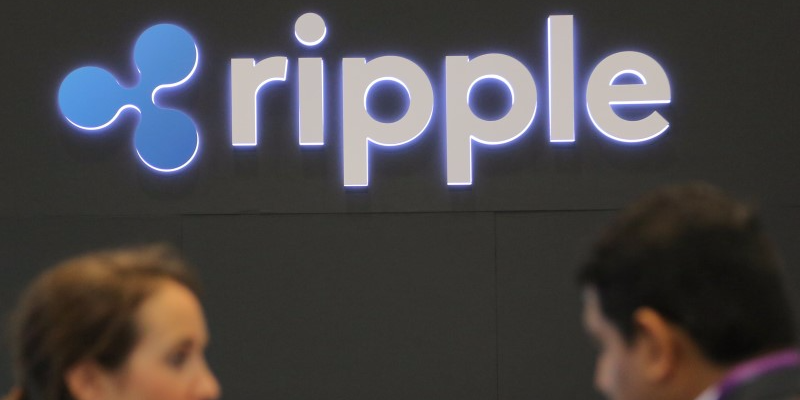- Greg Kidd, an early investor in Coinbase and Twitter, just invested $57.7 million toward Uphold, a currency exchange that also trades in cryptocurrencies.
- Uphold will use part of the money as insurance for its users to guarantee that their deposits to the exchange are protected in the event of a hacking incident.
- Uphold will also use the funds to add integrations with Ripple and beging trading in its cryptocurrency XRP, which is up almost 4000% since it started trading in April.
Greg Kidd has had big success with his early investment in Coinbase, the cryptocurrency exchange now valued at $1.6 billion. Before that, he was an early investor in Twitter and Square, before their respective IPOs.
Now Kidd, a federal regulator turned entrepreneur, has invested $57.7 million into Uphold, a four-year-old currency exchange where traders can convert USD into traditional currency like euros as easily as they can cryptocurrencies like the red-hot bitcoin. The investment was made through his firm, Hard Yaka.
A big part of where that funding will go: Adding support to Uphold for trading in XRP, the red-hot cryptocurrency from startup Ripple, making it one of the few mainstream currency exchanges to do so.

In a bigger-picture sense, Kidd's backing is all in the name of making Uphold more secure than smaller crypto-exchanges, while simultaneously positioning it as more innovative and experimental than the $1.6 billion leader of the pack Coinbase, which has been cautious about adding new cryptocurrencies to its exchange.The biggest part of Kidd's investment is an insurance fund for Uphold's users, which will be used to recompensate users in the event of a successful cyberattack on the company. Hack attacks on cryptocurrency companies has become increasingly commonplace, as many of these exchanges sit on millions of dollars in digital assets.
Currently, Uphold only holds an extra 1% on top of its users' deposits in reserves, according to Kidd. This will go up to 20% with the investment, the company said. While regulated institutions like banks are required to have some money on reserve, cryptocurrency exchanges aren't regulated in the same way.
"As an ex-regulator, that seemed thin to me," Kidd said about Uphold's 1% reserves. "It's fine in normal day-to-day operations, but there are a lot of hacks. And a hack could put you out of business."
Kidd believes that guarenteeing users that they will get their money back, even in the case of a hack, could give Uphold a leg up on its competition, and prevent it from collapsing completely if things do go wrong.
"It's to level the playing field," said Kidd. "People just assume Coinbase has enough money and can withstand a hack. But if you're a smaller exchange, people are like, 'What kind of assurance do I have if something bad happens?'"
Part of Uphold's mandate is to add XRP to its exchange
In addition to the reserves, 20% of Kidd's investment is a cash deal to fund Uphold Labs, a research facility that Kidd hopes will be as important to the future of cryptocurrency as the legendary Bell Labs was to telecommunications and computing.
As part of Kidd's investment, Uphold Labs has a mandate for several projects, including platform integrations with the Ripple ecosystem, as well as GlobaliD - a universal digital identity and payments company, which Kidd runs as CEO.
Ripple, where Kidd worked as chief risk officer from 2013 to 2015, is a growing blockchain-based payments company that primarily works with banks. Ripple offers its own cryptocurrency called XRP, which has exploded in the last few weeks, and is trading at around $1.22 - nearly 4000% from where it first started trading in April.

Kidd said that Uphold plans to add XRP trading in the near future. While XRP has had a lot of attention in the last few weeks because of major price gains, it's not available on certain mainstream trading platforms, including Coinbase and Gemini.
Uphold's willingness to add cryptocurrencies other than bitcoin, known in the community as "altcoins," is one of the reasons that Kidd became interested in the company.
"Out of all the thousands of coins, someone's going to have to decide which ones are worth making markets in, which ones are going to be compliant enough," Kidd said. "Market interests make it worth their while."
Kidd also has a right to buy 10% of the company
The final part of the investment is a warrant for a 10% stake in the company. This means Kidd has a right to buy that much of the company at a set price for a select period of time, though he retains the right to change his mind and back out.
Adrian Steckel, CEO of Uphold, said in a statement that the company will use the funding to accelerate its product development, and add new assets and "connectivity" to financial institutions and "blockchain and Ripple-centric projects."
"This is a landmark partnership for the crypto market. We have always provided our Members with unparalleled transparency and safety, as well as the greatest choice of currencies, now we're also giving them unprecedented asset protection," Steckel said.

